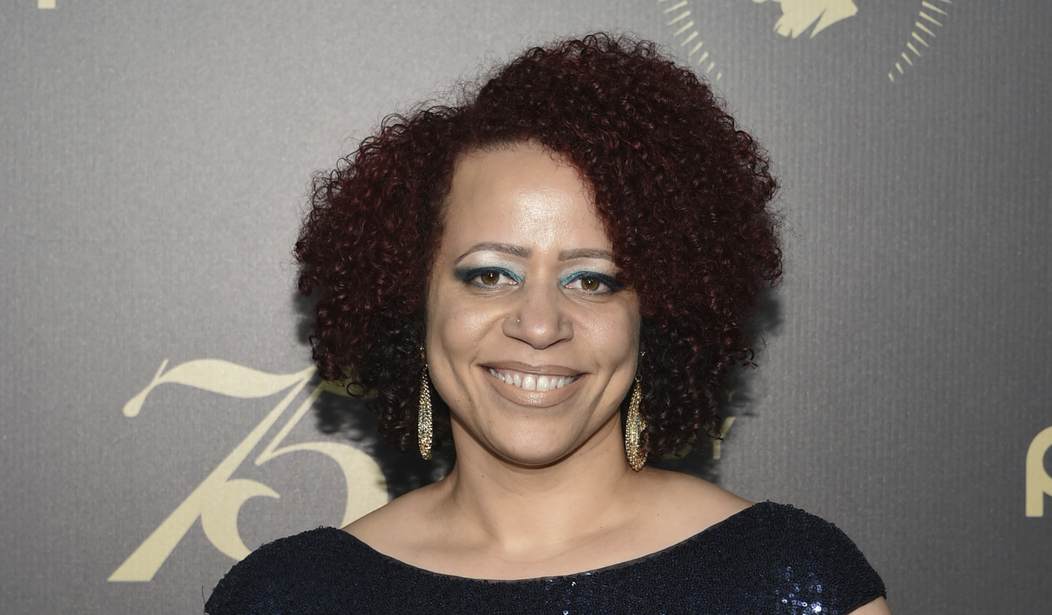Yesterday, Dan McLaughlin wrote a post at National Review about the latest incarnation of the 1619 Project, a Hulu miniseries. As McLaughlin points out, author Nikole Hannah Jones has repeatedly refused to correct the central error in her concept for the 1619 Project, despite some small concessions made by the NY Times. But when it comes to the new Hulu show, it sounds as if she’s still pushing the idea that fear the British would free the slaves was a major motivation for the Revolutionary War.
The core of what made the original 1619 Project so controversial was the insistence by Hannah-Jones on treating the preservation of slavery as a major cause — perhaps the major cause — of the Americans’ rebellion against Britain in 1775 and their declaration of independence in 1776. This stance led a historian who reviewed an advance copy of Hannah-Jones’s lead essay to warn against publishing it as written. It triggered a fusillade of criticism for the project from eminent liberal historians of the Revolutionary and Civil War periods. It finally compelled the Times to issue a reluctant “clarification” through gritted teeth — a correction Hannah-Jones has clearly never accepted…
That brings us to the first episode of the miniseries. Once again, Hannah-Jones dedicates crucial space and time to casting the Revolution as depending for its success on people motivated to fight by British threats to slavery, and strongly implies that it would have been better if the British had won the war and the United States had never existed as an independent nation. This is a jarring posture when juxtaposed with her repeated framing of black Americans as the true patriots, such as her American-flag-flying father; it suggests that her radical politics are out of step with the very people her miniseries celebrates…
Hannah-Jones centers her colonial narrative almost entirely on Virginia, but it escapes her notice that Virginia banned the transatlantic slave trade by statute in 1778, in a bill signed and probably authored by Virginia governor Thomas Jefferson (the same man who signed the federal ban in 1807). It makes no sense whatsoever to say that Americans revolted against something the British were not prepared to do, then did it themselves once British opposition had been removed.
More broadly, actual historians of the period are all but unanimous that the anti-slavery movement organized itself and enacted laws earlier in America than in Britain. The world’s first anti-slavery society was organized in Pennsylvania in 1775 at the urging of Quaker abolitionist Anthony Benezet, over a decade before the nascent anti-slavery movement began seriously organizing in Britain in 1786–87. Between 1777 and 1784, slavery was banned in Vermont, Massachusetts, Pennsylvania, New Hampshire, Connecticut, and Rhode Island. It was banned by Congress in the Northwest Territory in 1787, and by statutes passed in New York in 1799 and New Jersey in 1804. Parliament, by contrast, did not ban slavery in the British colonies until 1833, long after most of the American revolutionaries were in their graves. These are historical facts, and Hannah-Jones has never made any effort to address them.
Her focus has changed over time but in the Hulu special the proof she musters for her perspective is the November 1775 Dunmore Proclamation. Lord Dunmore was the royal governor of Virginia and he announced that any adult male slave who fought for the British would be freed. But McLaughlin argues that Hannah Jones has botched the timeline:
Dunmore was already locked in conflict with the Virginia legislature in 1774. Patrick Henry gave his “Give me liberty or give me death” speech in March 1775 to persuade an assemblage of Virginia’s leading men to raise a militia. George Washington took the most fateful step that summer:
The Dunmore Proclamation was issued in November 1775. Did that turn George Washington into a revolutionary? On July 3, 1775, in Cambridge Massachusetts, Washington assumed command of the Continental Army. He was immediately employed in besieging the British troops occupying Boston, two weeks after the Battle of Bunker Hill. In other words, four months before the Dunmore Proclamation, George Washington was not merely considering joining a war against Britain; he was already its commander in chief. This was, as Washington well knew, treason against the Crown, for which he could and likely would have been hanged. By October 1775, Washington was signing off on an American invasion of Quebec. For the Dunmore Proclamation to have turned Washington into a revolutionary, he would have needed a time machine.
The miniseries avoids discussing Washington or Henry or any of these events.
The Hulu series also misrepresents some more current controversies. I haven’t seen the show but it apparently quotes a group associated with failed Georgia gubernatorial candidate Stacey Abrams to argue that recent voting rights laws passed in the state are “just like laws passed during Jim Crow.” What the show doesn’t tell viewers is that Stacey Abrams lost her voting rights lawsuit on all counts last October. A judge appointed by Barack Obama found nothing raised in the lawsuit violated the constitution or the Voting Rights Act.
“Although Georgia’s election system is not perfect, the challenged practices violate neither the Constitution nor the VRA (Voting Rights Act),” Jones wrote in a 288-page order…
“The court finds that the burden on voters is relatively low,” Jones wrote about the “exact match” rules. “Here, plaintiffs have not provided direct evidence of a voter who was unable to vote, experienced longer wait times, was confused about voter registration status.”
Not to put too fine a point on it but Judge Jones is black. It seems the race-baiting allegations matter more to Nikole Hannah Jones than the fact that they were given a fair hearing and lost in court. Somehow that doesn’t surprise me.









Join the conversation as a VIP Member